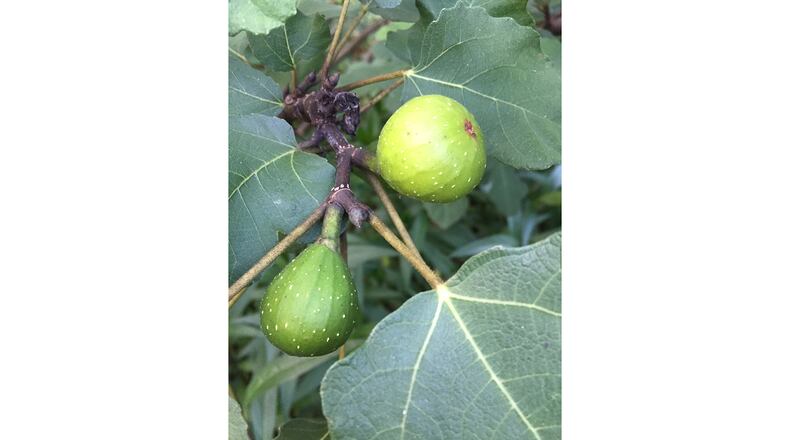Q: We planted a Brown Turkey fig two years ago. The first season, it had four rudimentary fruit. There were lots of green figs this year but they did not ripen for us. We’re hungry! Any advice? Lynn and Wink Weinberg, email
A: My friend Rob was in a similar situation one year. He waited and waited for a ripe fig. Eventually his figs ripened … because he had a Black Mission fig, not the Brown Turkey he thought he’d planted. Are the figs growing near the tip of branches? This indicates that they should be ripe now and are not those from Black Mission’s early spring breba figs. In any case, it wouldn’t be uncommon for ripening to be weird on young plants. It takes a while for the ripening hormones and energy storage process to become integrated.
Q: When do I need to treat for Japanese beetle grubs organically? Cory Pitts, northwest Georgia
A: The best time is early summer, as the adults lay their eggs. Although you can kill adults easily with insecticide, you won’t get all of them. Any that escape will lay more eggs. The most vulnerable time to attack Japanese beetles is in the egg and grub stage. Organic insecticides can be applied that specifically control Japanese beetle grubs. The best time is during the month or so before the adult beetles first emerge and start laying eggs. Milky spore bacteria (Paenibacillus popilliae, formerly known as Bacillus popilliae) infects only Japanese beetle grubs and has no effect on beneficial organisms. Although these bacteria occur naturally in the soil and may infect a small percentage of the grub population, applying commercial milky spore products has not been shown to provide any benefit in modern university research trials. Parasitic nematodes (tiny creatures that live in the soil and attack grubs) such as Heterorhabditis bacteriophora are available online. They generally do not affect beneficial insects. They need to be applied after the eggs have hatched and the grubs are present. If using nematodes, apply them during cool, overcast days or in the evening, and water before and after application as they are susceptible to drying out. While they can be effective, results have been inconsistent. Bacillus thuringiensis galleriae (Btg) is a bacterial strain that produces a toxin that affects beetle adults and larvae. Products containing Btg have provided variable levels of grub control in recent university trials. As you can see, effective organic control of grubs is not yet possible. A commercial alternative, chlorantraniliprole, is an effective, preventive insecticide that is also low risk for bees.
Email Walter at georgiagardener@yahoo.com. Listen to his occasional garden comments on “Green and Growing with Ashley Frasca” Saturday mornings on 95.5 WSB. Visit his website, walterreeves.com, or join his Facebook page at bit.ly/georgiagardener for his latest tips.
About the Author
Keep Reading
The Latest
Featured


